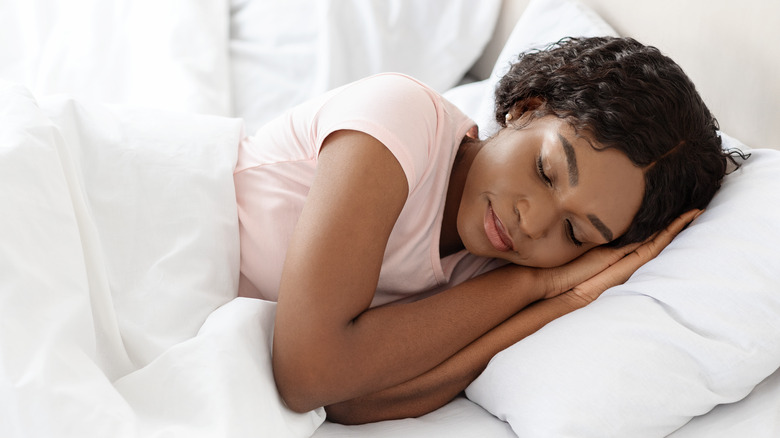What The Real Difference Is Between Serotonin And Dopamine
Often referred to as the "feel good" chemicals in the brain, serotonin and dopamine are two neurotransmitters that are vital in regulating emotions (via Medical News Today). While both may be integral to creating these feelings, there are actually major differences between the two.
A healthy dose of dopamine results in feelings of pleasure, satisfaction, and motivation within the brain (via Verywell Health), aids coordination, improves short-term memory and enhances behavior. Serotonin, on the other hand, helps regulate your mood, promotes healthy digestion, aids blood clotting, and prevents impulsive behavior.
Both chemicals provide functions that aid each other, so when there's an imbalance of one or both it can often lead to a variety of mental and physical health issues. A lack of dopamine is often linked to depression, addiction, mental health disorders, and movement-related diseases. Low levels of Serotonin can contribute to low mood and depression, sleep deprivation, and digestive issues.
Serotonin and dopamine obviously share a common set of positives and negatives. But there's actually an even bigger difference between the two that you may be unaware of.
Serotonin and dopamine actually play a vital role in the sleep-wake cycle
They may be chemicals related to pleasure and happiness, but the main difference between them lies within the sleep-wake cycle according to Healthline. Dopamine can hold back the effects of norepinephrine, a neurotransmitter that helps produce and release the sleep hormone melatonin. When dopamine inhibits this chemical, it causes the pineal gland in your brain to release less melatonin leading to a spike in energy.
Serotonin, on the other hand, has a more convoluted role in the sleep-wake cycle as it can both maintain and prevent sleep – it all depends on which part of your brain that the serotonin is produced in. As Healthline explains, when serotonin is produced in the dorsal raphe nucleus, high levels of the chemical are typically associated with wakefulness. But if there's a high amount of serotonin in this area for a long period of time, it may make you feel more sleepy. This neurotransmitter can also disrupt the rapid eye movement (REM) stage of sleep in some cases (via Semantics Scholar).
It's also needed to produce melatonin, which occurs in the pineal gland. Regarded as the sleep hormone (via Sleep Foundation), melatonin is the central component of the body's sleep-wake cycle which promotes a good night's sleep and maintains the body's natural circadian rhythm.

